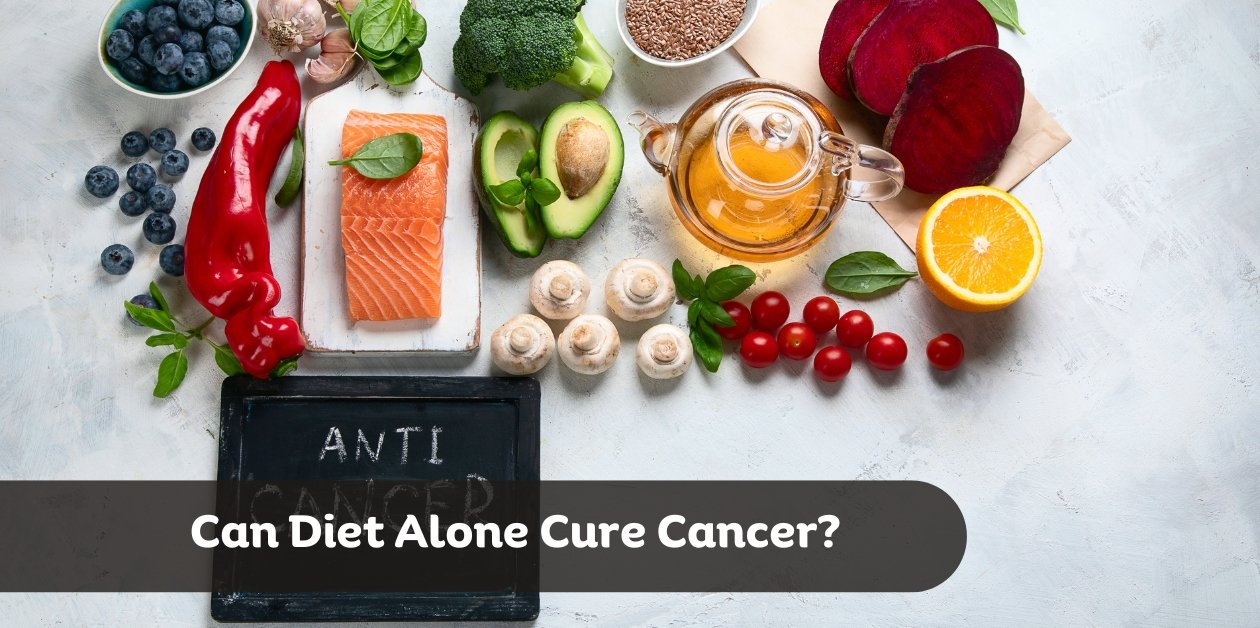
As an oncologist, one of the most common questions I encounter from patients and their families is whether dietary changes alone can cure cancer. With the rise of alternative medicine, holistic health trends, and an overwhelming amount of information available online, many people wonder if something as simple and accessible as food can be a powerful tool in fighting cancer. While diet plays an important role in overall health and can support cancer treatment, it is critical to understand that diet alone cannot cure cancer.
The Role of Diet in Cancer Treatment
There is no denying the significance of nutrition in cancer care. A balanced, nutrient-rich diet is essential for maintaining strength, energy, and overall well-being during cancer treatment. Chemotherapy, radiation, and surgery can be physically demanding on the body, and proper nutrition can help manage side effects like fatigue, weight loss, and reduced immune function. For example, a diet high in antioxidants, vitamins, and minerals can help boost the immune system and support the body in its ability to fight off infection.
Additionally, some research suggests that certain dietary patterns—such as a Mediterranean diet or plant-based eating—might be associated with lower risks of certain types of cancer or better outcomes in cancer patients. The idea is that nutrient-dense foods such as fruits, vegetables, whole grains, legumes, and healthy fats may contribute to the prevention of cancer through their anti-inflammatory and antioxidant properties.
However, it’s crucial to differentiate between using diet as a complementary approach to medical treatment and viewing it as a stand-alone cure. While food has a significant impact on health, it cannot replace the scientific, evidence-based therapies that are proven to treat cancer.
Why Diet Alone Can’t Cure Cancer
Cancer is a complex and multifactorial disease. It involves mutations in DNA that cause cells to grow uncontrollably, evading the normal regulatory processes that maintain cellular balance. These mutations are not something that can be directly “fixed” by food. While some dietary components might influence genetic expression or reduce inflammation, there is no scientific evidence that a specific diet alone can reverse cancerous growth.
Cancer treatment typically involves a combination of surgery, radiation, chemotherapy, immunotherapy, and targeted therapies, all of which are developed based on extensive research and clinical trials. These treatments are designed to target and kill cancer cells, shrink tumors, and manage the spread of cancer. Diet, on the other hand, supports the body during this process, but it does not directly target or kill cancer cells in the same way medical treatments do.
The Dangers of Relying Solely on Diet
One of the dangers of believing diet can cure cancer is that it may lead some patients to delay or forgo proven medical treatments in favor of unproven dietary regimens or supplements. While some alternative therapies can be supportive, they should never replace conventional cancer treatments. In fact, there have been cases where patients, after opting for dietary or herbal remedies instead of standard care, have experienced progression of their cancer or worsened outcomes.
Additionally, certain restrictive diets can result in malnutrition, which can weaken the body’s ability to tolerate cancer treatments. A weakened immune system, insufficient calorie intake, or deficiency in essential nutrients can make it harder for the body to fight cancer and recover from treatment.
Integrating Diet with Medical Treatment
While diet alone can’t cure cancer, a healthy diet can certainly improve quality of life during treatment and may help reduce the risk of recurrence once treatment is complete. As part of a comprehensive cancer care plan, a nutritionist or dietitian can guide patients on the best foods to support their treatment. Here are some general recommendations:
1. Maintain Nutritional Balance: Focus on a diet rich in whole foods—fruits, vegetables, lean proteins, whole grains, and healthy fats.
2. Stay Hydrated: Adequate water intake is essential to keep the body functioning properly, especially during treatments like chemotherapy or radiation, which can dehydrate the body.
3. Manage Side Effects: If treatment causes nausea, loss of appetite, or difficulty swallowing, a dietitian can help customize meals to make eating easier and more enjoyable.
4. Limit Processed Foods: High intake of processed foods, red meats, and sugary snacks has been associated with increased risks of certain cancers, so focusing on whole, minimally processed foods is a smart strategy.
5. Consider Supplements Cautiously: Some cancer patients turn to vitamins or herbal supplements in hopes of improving their prognosis. While certain supplements, like vitamin D or omega-3 fatty acids, may have a beneficial role, it’s important to consult with a doctor before starting any new regimen. Some supplements can interfere with cancer treatments or cause harmful side effects.
Cancer is a serious, multifaceted disease that requires a well-rounded, scientifically-backed treatment approach. While diet plays an essential role in supporting overall health, energy, and recovery during cancer treatment, it should never be considered a replacement for conventional cancer therapies. Diet is a complementary tool, not a standalone cure.
For cancer patients, the best approach is to work with a team of healthcare providers—oncologists, dietitians, and other specialists—to create a comprehensive care plan that addresses all aspects of treatment, from medical interventions to nutrition and emotional support.
In the battle against cancer, there is no magic bullet. But with the right combination of treatments, including a healthy, balanced diet, we can offer the best chance for long-term survival and a good quality of life.
Why More Young Adults Are Developing Colorectal, Pancreatic & Other GI Cancers …
By Dr. Saadvik Raghuram Y – Leading Oncologist in Hyderabad World Cancer …
Why Are So Many Young People Getting Cancer Today? Across the world, …
January is Cervical Cancer Awareness Month in India, and this article explains …
Cancer-Related Fatigue (CRF) is one of the most common—and most underestimated—symptoms experienced …
Every year, Aplastic Anemia Awareness Month shines a spotlight on a rare …

